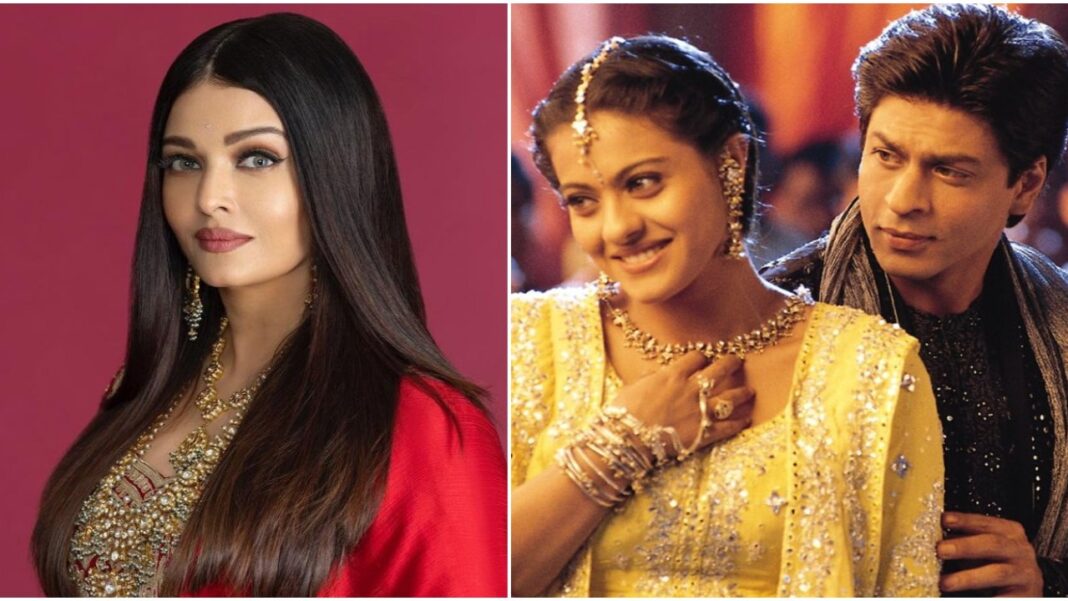Karan Johar’s Kabhi Khushi Kabhie Gham enjoys a massive fan base. While the multi-starrer has attained a cult status, Kajol’s role as Anjali has resonated well with cine-goers. But did you know the filmmaker initially had Aishwarya Rai Bachchan in his mind for the role?
In an old interview with Komal Nahta, Karan Johar mentioned he wanted to initially cast Aishwarya in the role of Anjali. According to him, he believed that Kajol might not be available considering her personal life and choice of starting a family.
“When I was casting for Kabhi Khushi Kabhie Gham, I got to know that Kajol won’t be able to do the film because she was married and maybe she wanted to start a family. I thought I will approach Aishwarya. On that particular day, at 3 p.m. I reached Kajol’s studio and I thought she will say no, we will shed some tears and I will leave. I, of course, felt bad because Kajol had already worked with me,” he said.
However, as opposed to KJo’s expectations, Kajol accepted the offer and wanted to do the film. Thus, the filmmaker didn’t go to meet Aish. Nevertheless, Karan admitted that Aishwarya was his “choice and after that, the series of ‘missing’ started.”
Meanwhile, Aish also talking about the same in an interview with DNA had admitted Karan coming to her with the script. According to her, the script and the character later went for a change. The actress was ‘sure’ about it as she noted the narration given to her and what was presented eventually on-screen was different. Mentioning Kajol as ‘fabulous,’ the actress reflected on how she couldn’t collaborate with Karan then.
The multi-starrer family drama led by Shah Rukh Khan, Kajol, Kareena Kapoor, Hrithik Roshan, Amitabh Bachchan, and Jaya Bachchan was released in 2001. Directed by Karan Johar, it narrates the story of an Indian family that develops cracks after the adopted elder son (SRK) marries a girl (Kajol) belonging to a humble background.
Later, the younger son comes into the picture and plays an important role in reuniting his father and brother; adding an important and emotional arc in the film.







